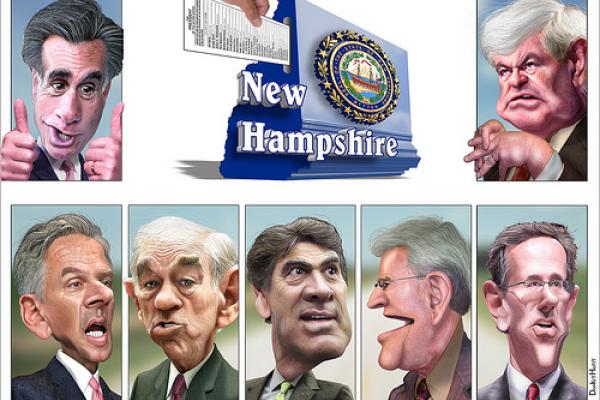Jan 9, 2012
Tomorrow, New Hampshire votes. If there is one thing that I can tell you about my home state that might give insight into tomorrow’s voting, it is this:
It’s the only state in the country with the “right to revolution” written into it’s constitution. (Check it out, it’s article 10 in the N.H. bill of rights.)
The old Yankees of New Hampshire don’t like being told who to vote for. And, they especially don’t want to be told who should get their vote by anyone who works for a cable news company.
Remember how Obama was supposed to go on from Iowa to take New Hampshire sealing up the Democratic nomination? If they could throw a wrench into the GOP nomination process, I’m sure New Hampshirites would be proud to do so.
Read the Full Article

Already a subscriber? Login
